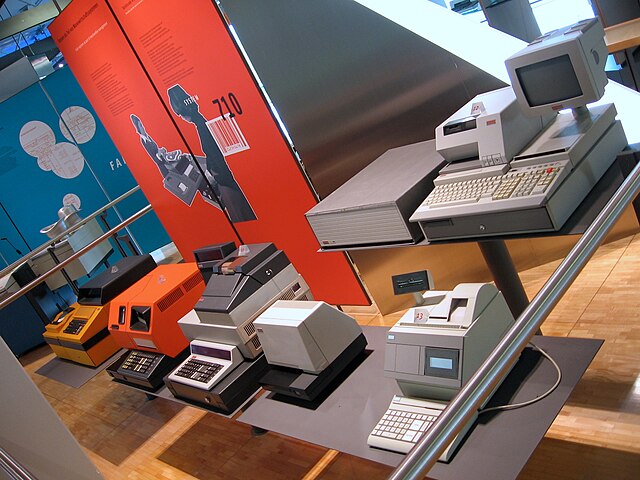Psychological pricing is a pricing and marketing strategy based on the theory that certain prices have a psychological impact. In this pricing method, retail prices are often expressed as just-below numbers: numbers that are just a little less than a round number, e.g. $19.99 or £2.98. There is evidence that consumers tend to perceive just-below prices as being lower than they actually are, tending to round to the next lowest monetary unit. Thus, prices such as $1.99 may to some degree be associated with spending $1 rather than $2. The theory that drives this is that pricing practices such as this cause greater demand than if consumers were perfectly rational. Psychological pricing is one cause of price points.
Example of psychological pricing at a gas station
A cash register, sometimes called a till, cashbucker, or automated money handling system, is a mechanical or electronic device for registering and calculating transactions at a point of sale. It is usually attached to a drawer for storing cash and other valuables. A modern cash register is usually attached to a printer that can print out receipts for record-keeping purposes.
National cash register from the end of the 19th century, National History Museum, Sofia.
Antique crank-operated cash register, with display showing money in French francs and centimes
Various types of modern cash registers.
Old Canadian general store shopping register model, City of Surrey Museum, British Columbia, Canada





